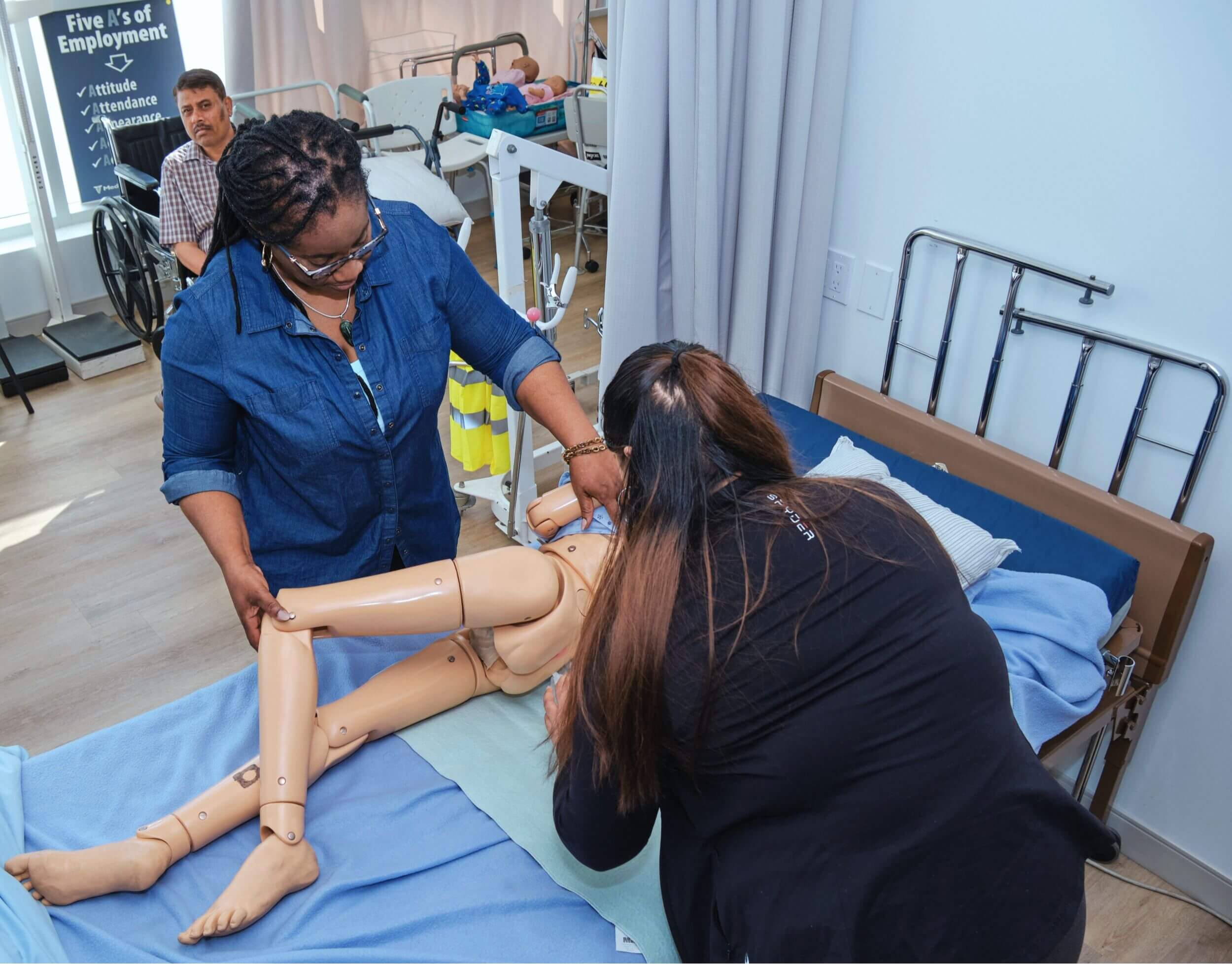From Classroom to Care: Succeeding as a Personal Support Worker
January 13, 2025
Becoming a Personal Support Worker is a fulfilling journey combining classroom learning with real-world application. Transitioning from student to caregiver is a significant step, and success in this field requires a blend of practical skills, empathy, and dedication.
Whether starting your career or looking to enhance your capabilities, understanding how to be an effective Personal Support Worker is crucial for personal satisfaction and the well-being of those you care for.
How to Be an Effective Support Worker
Effectiveness as a Personal Support Worker stems from a deep understanding of your role, continuous learning, and the ability to connect with clients on a personal level. Here are four ways to provide excellent service:
- Comprehensive Knowledge of the Plan of Care: Understanding and closely following each client’s Plan of Care is crucial. This document guides your actions, ensuring they meet the client’s needs and align with the healthcare team’s goals.
- Empathy and Communication: Effective communication, rooted in empathy, is vital. You create a strong connection that positively impacts their well-being by listening and responding compassionately to your clients.

- Adaptability: Each client’s needs are unique and can change daily. Adaptability allows you to respond effectively to these changes, ensuring you provide the best care possible.
- Continual Learning: Healthcare is ever-evolving, and staying informed about the latest practices is essential. Beyond your initial personal support worker certificate, engaging in ongoing education through workshops and additional training helps you enhance your skills and the quality of care you provide.
A Day in the Life of a Personal Support Worker
What do you think a day in the life of a Personal Support Worker looks like? A typical day for a Personal Support Worker is rewarding and challenging, filled with diverse tasks that require attention to detail and emotional resilience. Here’s what a day in the life of a Personal Support Worker might look like:
- Morning Routine: Your day often starts early, helping clients with their morning routines. This can include assisting with personal hygiene, dressing, and preparing breakfast. Ensuring that clients start their day comfortably and with dignity is a priority.
- Medical and Mobility Assistance: Throughout the day, you may administer medication, monitor vital signs, or assist clients with mobility issues. Following the Plan of Care, you’ll ensure that all medical needs are met accurately and safely.
- Emotional Support and Companionship: A significant part of your role involves providing companionship and emotional support. Whether conversing, engaging in activities, or simply being present, your interactions contribute to the client’s emotional well-being.
- Evening Wind Down: As the day winds down, you help clients prepare for the night, ensuring they are comfortable and secure. This might involve preparing dinner, assisting with evening hygiene routines, and ensuring everything is in place for a restful night.

Promoting Self-Esteem and Motivation
One of the most impactful aspects of being a Personal Support Worker is the ability to promote self-esteem and motivation in your clients. Here’s how you can make a difference:
- Encouragement and Positive Reinforcement: Celebrate small victories, whether completing a task independently or participating in a new activity. Positive reinforcement boosts confidence and encourages clients to take on more challenges.
- Fostering Independence: Encourage clients to do things for themselves, even if it’s something small. This fosters a sense of autonomy and self-worth.
- Creating a Supportive Environment: A safe and supportive environment is essential for clients to feel secure in their abilities. By creating a space where clients feel comfortable expressing their needs and trying new things, you help them build confidence and self-esteem.
Are you looking for comprehensive personal support worker training?
Contact Medix College for more information.
Frequently Asked Questions
Question: How to be an effective support worker?
Answer: Effectiveness as a Personal Support Worker stems from a deep understanding of your role, continuous learning, and the ability to connect with clients on a personal level.
Question: What do you think a day in the life of a Personal Support Worker looks like?
Answer: A typical day for a Personal Support Worker is rewarding and challenging, filled with diverse tasks that require attention to detail and emotional resilience.




